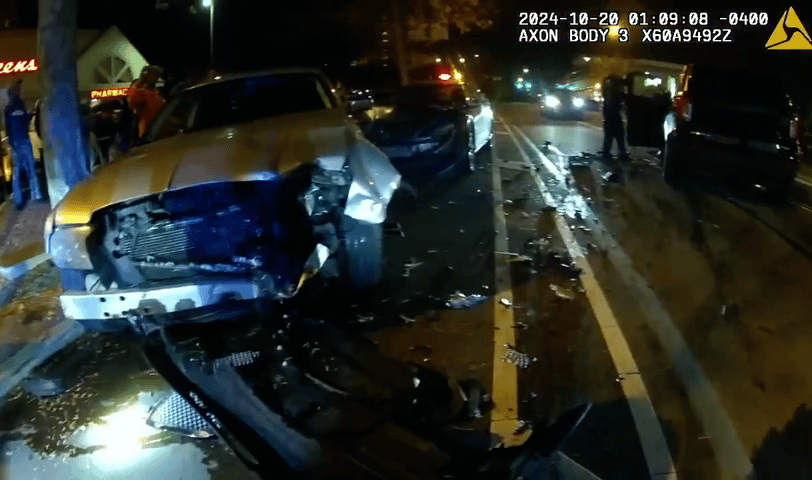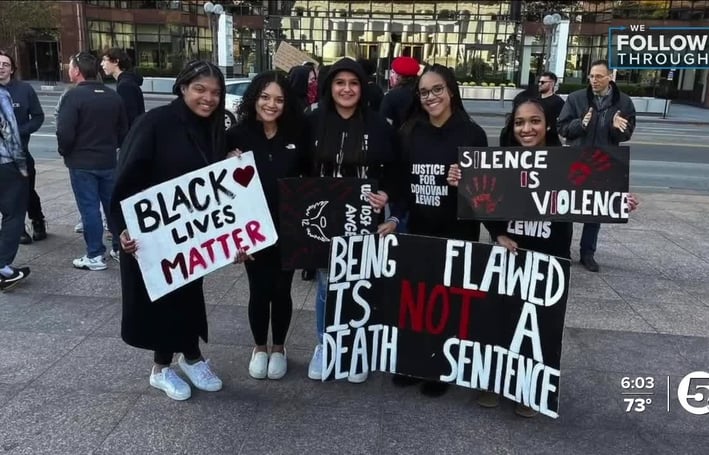End of Qualified Immunity? Ohio Mobilizes Against Legal Shield for Police
The news covers the movement of activists in Ohio, USA, aiming to end qualified immunity for police through a constitutional amendment, following multiple incidents involving emergency vehicles.


An Akron police officer was found to be at fault for an accident in Highland Square that smashed up four cars, and a department investigation revealed he violated policy. (Photo from Akron Police body camera footage.)
COLUMBUS, OHIO — Activists in Ohio are collecting signatures to place a constitutional amendment on the ballot to end qualified immunity — a legal protection that prevents citizens from suing police and public officials, even in cases of obvious damage.
The trigger? A crash caused by an Akron police officer that smashed four cars, including Steven Rockich’s. “The tow cost me over $600, and my car was worth over $5,000. It’s all gone,” he said.
Currently, state law only allows lawsuits if victims can prove a violation of constitutional rights — a nearly impossible task. Activist Marije Rivers leads the coalition pushing for the amendment, which requires 415,000 signatures by July to qualify for the November vote. The group believes victims deserve fair compensation without facing legal brick walls.
Investigations have found thousands of emergency vehicle-related crashes across Ohio in the last five years. Still, critics like Jay McDonald, president of the Fraternal Order of Police, argue that stripping this immunity could demoralize officers. “If a cop fears being sued just for doing their job, who’s going to protect our neighborhoods?” he asks.
Yet public outrage builds. “They told me they won’t pay a cent. All because of full immunity,” Rockich said. The fight now heads toward the ballot box.


Ohio activists are starting to gather signatures to get a constitutional amendment on the ballot that would end qualified immunity.
Similar cases are rising in other U.S. states, reigniting the national debate on qualified immunity.
In states like California, Colorado, and New York, lawmakers are also pushing for reforms to limit or eliminate qualified immunity after reports of citizens being denied compensation for damages caused by public officials. Colorado, for instance, has already passed a law allowing individuals to sue police officers in state courts without the qualified immunity barrier. Experts say this momentum could directly influence public opinion and decisions in Ohio.
Additionally, a recent report from the National Police Accountability Project revealed that over 85% of cases attempting to bypass qualified immunity are dismissed before even reaching trial, reinforcing the narrative that the protection blocks victims' access to justice.
